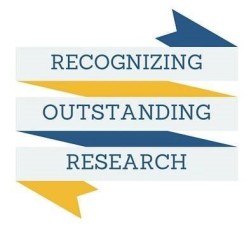The following is part of a series of posts written by MPSA award recipients highlighting outstanding research presented at previous MPSA annual conferences and in the American Journal of Political Science. The following AJPS Author Summary was first published on the AJPS website and is shared here with permission.
 In developing countries, ethnic groups – also known as tribes – play an important role in political life. Prior research shows that people living in areas that are more ethnically homogeneous are more likely to act collectively. For example, in more homogeneous communities, people are more likely to donate to a local public school or support a local armed rebellion. Several existing theories assume that such collective action is easier among people from a single ethnic group in part because group members are better able to share information than people from different groups. This is the case, several scholars believe, because the social networks among people of an ethnic group are denser.
In developing countries, ethnic groups – also known as tribes – play an important role in political life. Prior research shows that people living in areas that are more ethnically homogeneous are more likely to act collectively. For example, in more homogeneous communities, people are more likely to donate to a local public school or support a local armed rebellion. Several existing theories assume that such collective action is easier among people from a single ethnic group in part because group members are better able to share information than people from different groups. This is the case, several scholars believe, because the social networks among people of an ethnic group are denser.
To study the “real world” accuracy of these assumptions, we conducted an experiment in rural Uganda. We seeded identical information in the same way at the same time in two villages that are similar in most ways – except that one village is ethnically homogeneous, and the other is more diverse. The seeded information was that in three days an event would be held at which all adults in attendance would receive a valuable block of soap in exchange for taking a survey. By then surveying villagers who did and did not attend, we learned that, as expected, the information spread much less widely in the diverse village; more than eight-times more individuals from the homogeneous village heard about the event. However, contrary to expectations, we find that the social network in the more diverse village is significantly denser; many more social ties interconnect people there. In other words, news spread much more widely in the homogeneous village despite having a less dense social network.
To understand why network density can in fact impede information spread, we argue that if people hesitate to share information more with out-group members than with in-group members – even if the difference is small – then greater network density can actually impede the spread of information. The intuition is as follows: given a limited number of opportunities to share news with a social contact on a given day, greater density – especially if it is driven in part by more cross-group ties — increases the likelihood that some of those opportunities are with less trusted social contacts. Additional ties to those one trusts less crowd out the chance to interact with more trusted people, to whom information flows more freely. Because of the exponential nature of information spread, when this dynamic recurs throughout a network, it can greatly impede the spread of information overall. In the paper, we show how this process can work by simulating information spread through the village networks about which we collected data.
While this is a small study of two villages, it provides a rare, direct look at the process of information transmission in rural societies, and provides clues about why information – and perhaps even disinformation or propaganda – may spread more easily in less diverse areas.
About the Authors: Jennifer M. Larson of Vanderbilt University and Janet I. Lewis of the U.S. Naval Academy have authored the article, “Ethnic Networks”, published in the April 2017 issue of the American Journal of Political Science, which was awarded the AJPS Best Article Award at the 2018 MPSA Conference. (MPSA members: Log in at http://www.MPSAnet.org/AJPS to access.)
